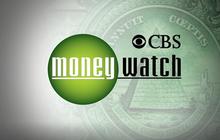News of the $5 billion settlement thrust Goldman Sachs into the glare of the public spotlight, and the cross hairs of the presidential campaign.
Senator Bernie Sanders called it "a fraudulent organization," while Governor John Kasich said "the Wall Street firms engaged in greed, massive greed."
In February, Morgan Stanley settled for $3.2 billion, Wells Fargo agreed to pay $1.2 billion, J.P. Morgan Chase paid $13 billion three years ago, and Bank of America coughed up a whopping $16.6 billion in 2014.
Goldman admitted that in bundling mortgages from subprime loan specialists like Countrywide Financial -- and then selling them to investors as bonds -- it largely failed to address financial problems it knew about.
In one period during August 2006, Goldman found what it called an "unusually high" percentage of loans with credit and compliance defects.
When one transaction manager was asked by Goldman officials "How do we know that we caught everything," he answered: "We don't."
Another responded it "depends on what you mean by everything." And when an outside analyst wrote a positive review of Countrywide, the head of due diligence at Goldman wrote in an e-mail: "if they only knew."
This was a civil case, so no one is going to jail. And that's likely to add to the anger, according to Robert Weissman of advocacy group Public Citizen.
"Millions of people were thrown out of jobs, millions of people lost their homes, communities were destroyed -- all because of their wrong doing. Yet they are escaping any criminal accountability, it seems."
While a $5 billion civil penalty is a lot of money, approximately half of it appears to be tax deductible -- meaning Goldman Sachs will be getting a tax break that could shave about a billion dollars off the total they've agreed to pay.
Senator Bernie Sanders called it "a fraudulent organization," while Governor John Kasich said "the Wall Street firms engaged in greed, massive greed."
In February, Morgan Stanley settled for $3.2 billion, Wells Fargo agreed to pay $1.2 billion, J.P. Morgan Chase paid $13 billion three years ago, and Bank of America coughed up a whopping $16.6 billion in 2014.
Goldman admitted that in bundling mortgages from subprime loan specialists like Countrywide Financial -- and then selling them to investors as bonds -- it largely failed to address financial problems it knew about.
In one period during August 2006, Goldman found what it called an "unusually high" percentage of loans with credit and compliance defects.
When one transaction manager was asked by Goldman officials "How do we know that we caught everything," he answered: "We don't."
Another responded it "depends on what you mean by everything." And when an outside analyst wrote a positive review of Countrywide, the head of due diligence at Goldman wrote in an e-mail: "if they only knew."
This was a civil case, so no one is going to jail. And that's likely to add to the anger, according to Robert Weissman of advocacy group Public Citizen.
"Millions of people were thrown out of jobs, millions of people lost their homes, communities were destroyed -- all because of their wrong doing. Yet they are escaping any criminal accountability, it seems."
While a $5 billion civil penalty is a lot of money, approximately half of it appears to be tax deductible -- meaning Goldman Sachs will be getting a tax break that could shave about a billion dollars off the total they've agreed to pay.






0 comments:
Post a Comment